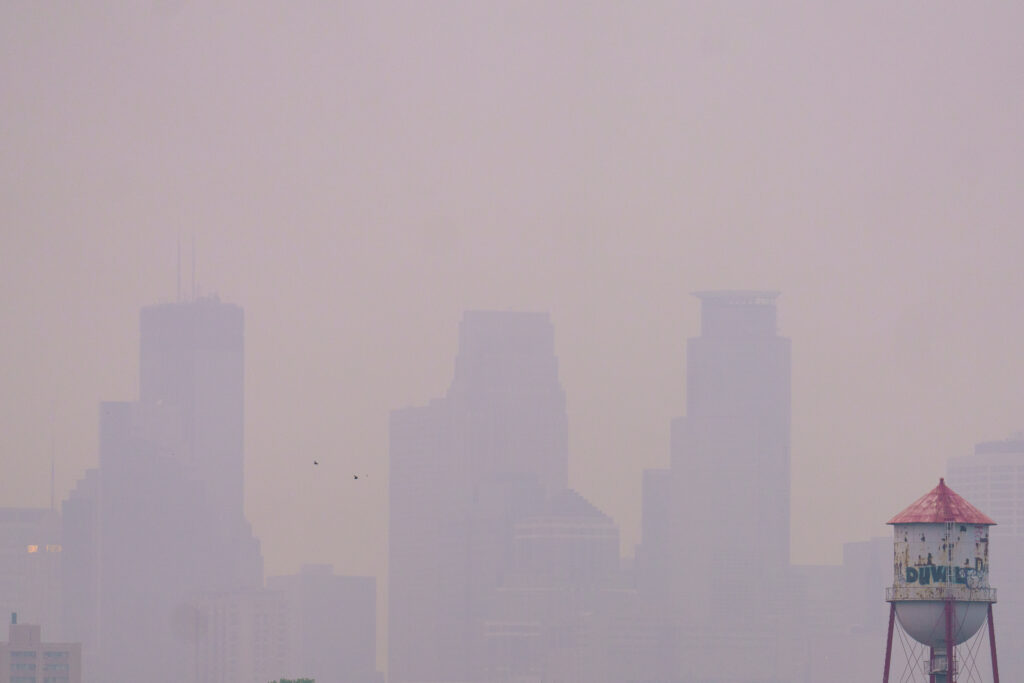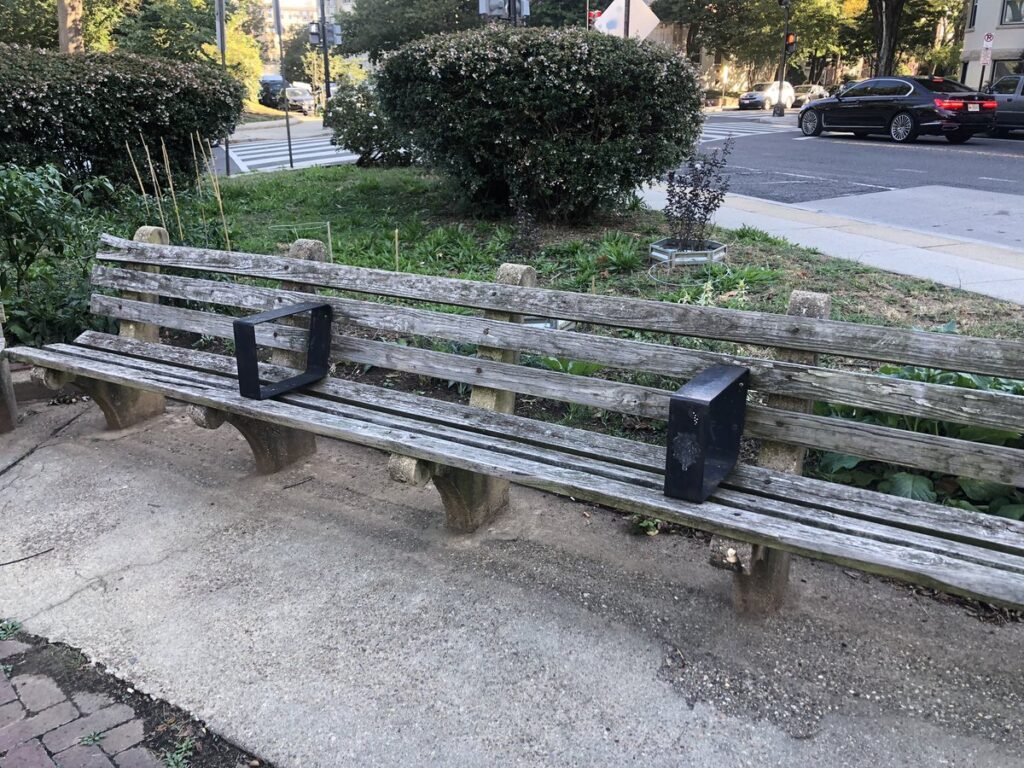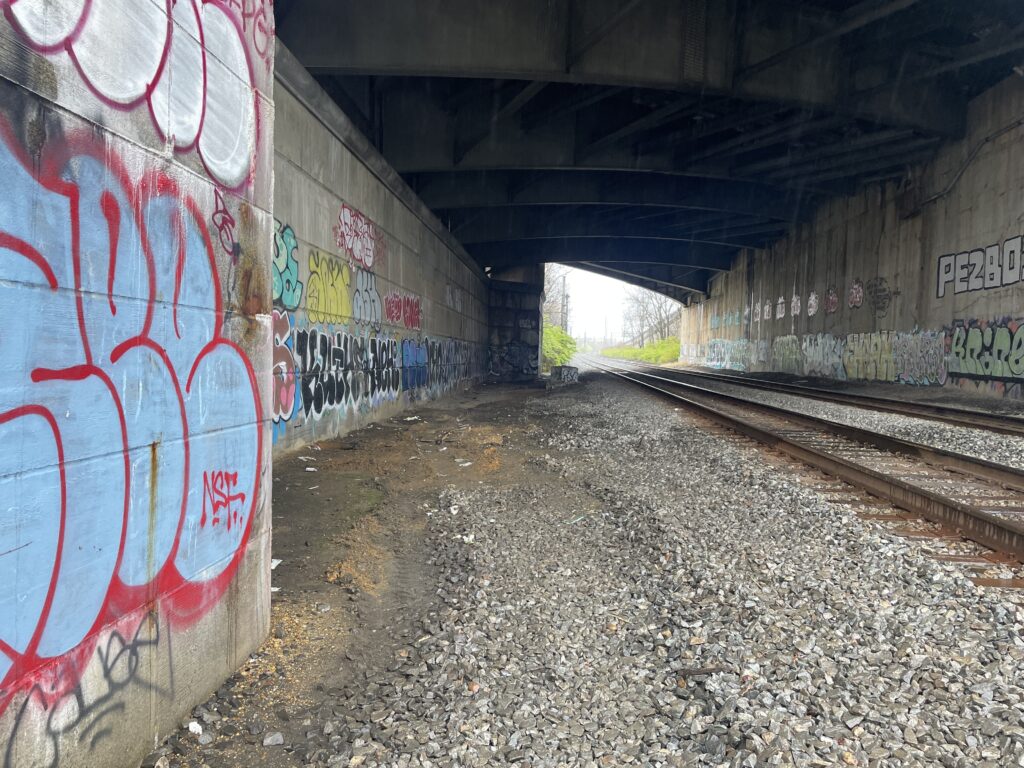“Go inside,” they say. “Avoid breathing in this unhealthy air,” they say. But not everybody has the option to take refuge indoors. Indeed, the smoky skies from Canada’s out of control wildfires show that impacts of the climate crisis are not only widespread, but that they impact some populations disproportionately. The American Lung Association says that particulate matter, carbon monoxide, and the release of other hazardous air pollutants from wildfires threaten our health. The organization identifies vulnerable populations as “children, older adults and those with heart disease, diabetes, asthma, COPD and other lung diseases.”
Another disparity is visible in DC. We can see that our neighbors who are unhoused are more exposed to the smoke than others. This is a perfect example of how climate change impacts marginalized communities “first and worst.” Much like with hotter summers and extreme storms, people with fewer resources are less able to navigate out of harm’s way.
We who are blessed with greater resources have been fooling ourselves into thinking we will be somehow protected not just from smoke, but from all the other cascading calamities of climate change. Everybody in the region was impacted from this climate experience—it was just a question of to what degree.
With the decades of fossil fuel pollution now yielding fruit, this recent experience demonstrates how global the problem is. Weather patterns do not follow political borders. Climate change requires international cooperation, seeing as both greenhouse gasses and smoke (not to mention other forms of pollution) ignore national borders. The US should be leading that international effort. But in order to do it we need a game plan for carbon neutrality first, harnessing the vision set forth in the Inflation Reduction Act and building upon it to identify how we will reduce emissions.
If there is a bright side of the dark skies, it is that of people being spurred into action. Resistant to continuing without a fight, people can take this as a sign that we cannot settle for the status quo. Individuals can take public transit and bicycle/walk more, eat a plant-rich diet, and use DC programs like Solar for All to adopt renewable energy.
At Citizens’ Climate Lobby, we are advocating for systemic solutions in Congress like making polluters pay, planting more trees, and switching from fossil infrastructure to electric. We are eagerly anticipating a bill called the Energy Innovation and Carbon Dividend Act that would make pollution more expensive and clean energy more competitive. Our Congresswoman Eleanor Holmes Norton was one of dozens of cosponsors in the last Congress. Locally, great orgs like Sierra Club, CCAN, and WIN are helping our city rely less on gas appliances (which are also harmful to our health) in favor of electric.
Although the effects of climate change are already here and bound to get worse if we do not make substantial changes quickly, there is still reason to act. Every increment of pollution we can withhold reduces the likelihood and severity of the next extreme weather event. There is power in optimism. The drivers behind fossil fuels and other causes of climate change rely on our self-assigned impotence to continue their unmitigated polluting—they thrive when we believe that we cannot make a difference. Fortunately, we are seeing folks prioritizing a more sustainable world, knowing that every action counts. If you believe in disrupting the inequality of climate impacts and those who cannot step inside, this is the time to step up.
Max Broad is the co-leader of the DC Chapter of the Citizens’ Climate Lobby.








